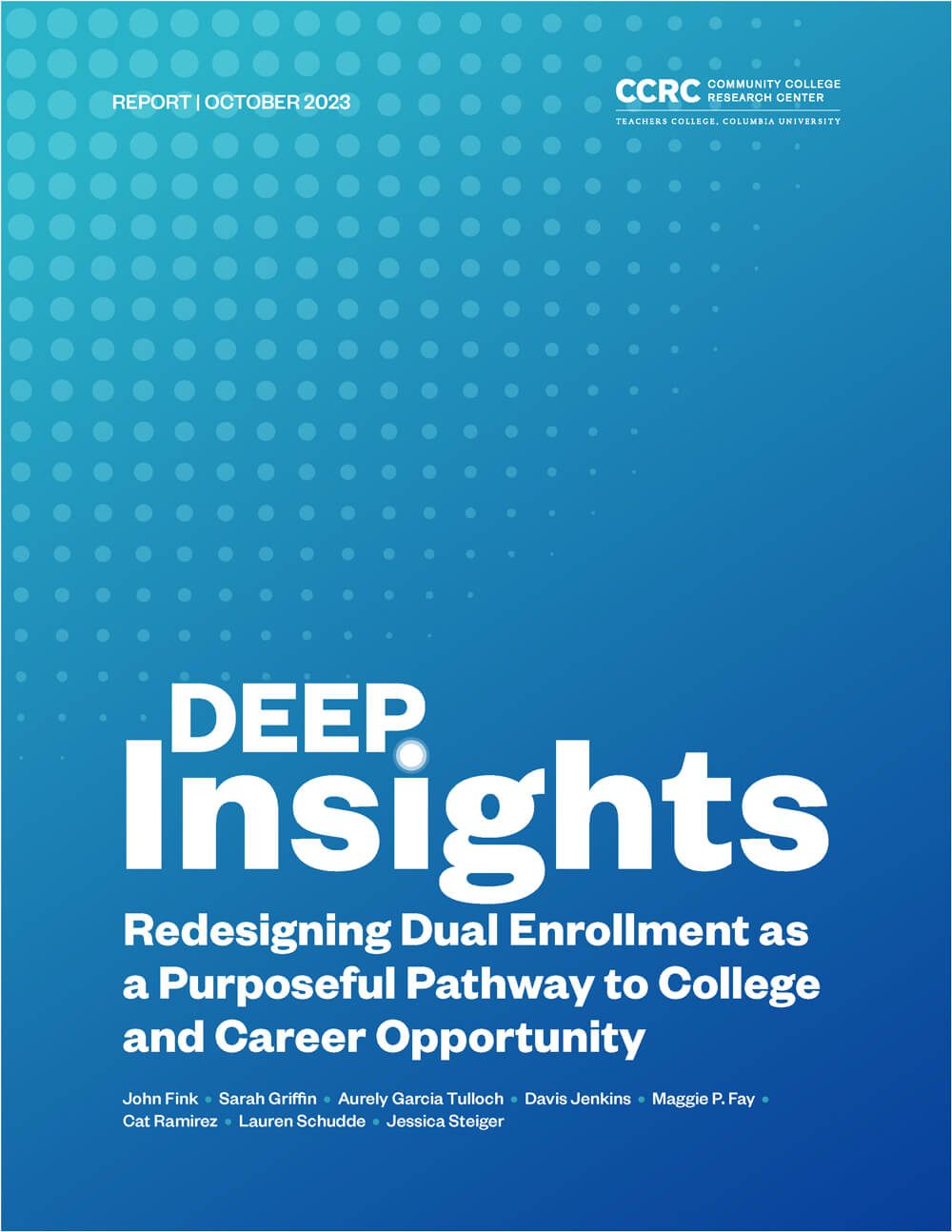
Dual enrollment equity pathways (DEEP) is a research-based framework for rethinking dual enrollment as a more equitable on-ramp to college programs of study that lead to family-supporting, career-path jobs for students who might not otherwise pursue education after college. The DEEP approach involves community colleges and K-12 schools partnering in four practice areas to (1) conduct outreach to underserved students and families to encourage their participation in dual enrollment, (2) align dual enrollment course offerings to career-technical associate and bachelor’s degree programs in high-opportunity fields, (3) advise students in the exploration of their interests and the development of post-high school education and career path plans, and (4) support students by delivering high-quality instruction to build their confidence as college learners.
In this report, the authors describe what they learned through field research at six promising community college–K-12 partnerships in Florida and Texas that have begun to extend guided pathways practices to dual enrollment offerings and that have achieved strong results using dual enrollment to expand college access and opportunities for Black, Hispanic, and low-income high school students. For each of the four practice areas, the authors highlight the problems or shortcomings of the conventional dual enrollment approach and explain what the partnerships are doing to rethink and reform dual enrollment in ways that motivate and prepare students from underserved groups to pursue postsecondary pathways to careers after high school. The authors then discuss two multifaceted DEEP leadership strategies that emerged from their fieldwork for (1) establishing a shared DEEP mindset and (2) enabling DEEP practices at scale. They also provide a set of discussion questions for college leaders to ask their K-12 schools in order to develop a strong partnership and shared vision.
A companion report reviews the evidence base for the DEEP approach, describes the need and emerging incentives and opportunities for colleges and K-12 partners to implement this approach on a large scale, and reviews how the DEEP framework builds on guided pathways practices.
